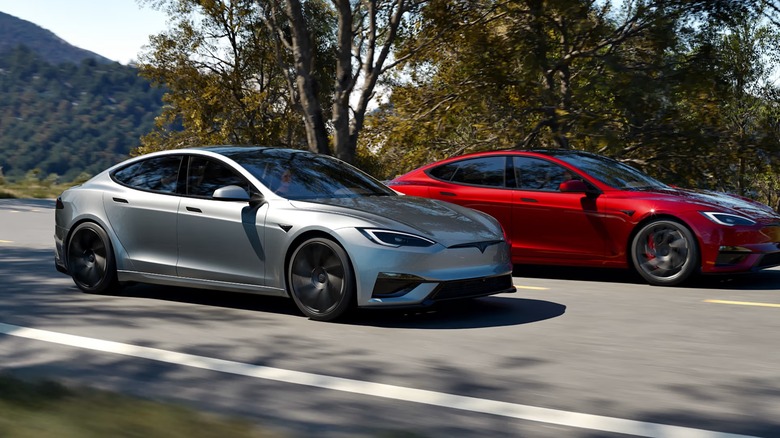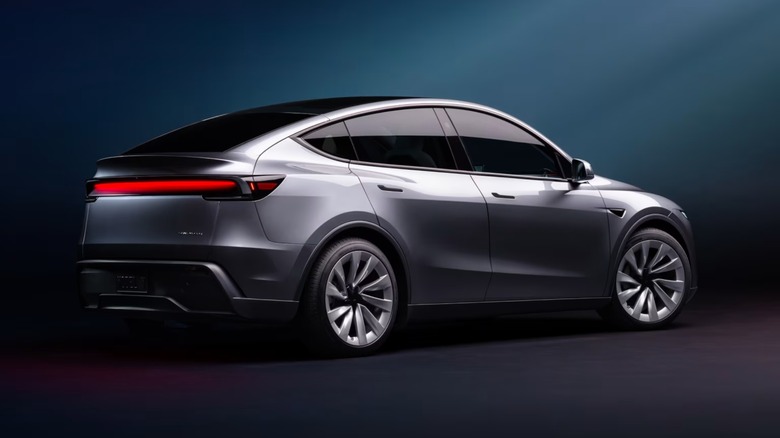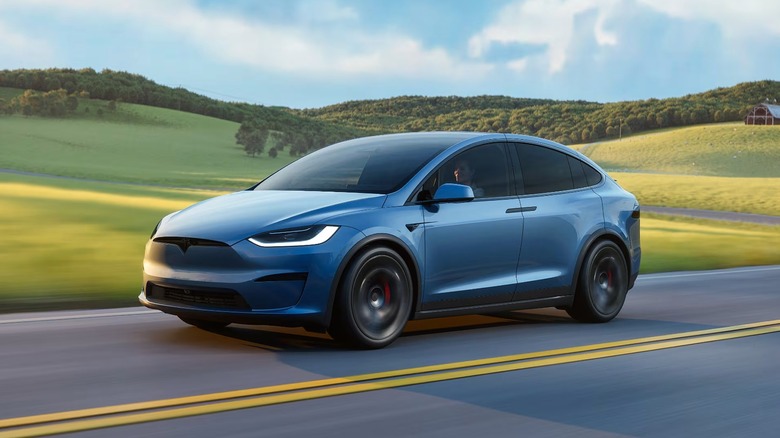Why Owners Say You Should Avoid Buying A Used Tesla If You Don't Want A Headache
On paper, a used Tesla can look like a dream deal. After all, it has cutting-edge technology and zero emissions. It also has a silent acceleration that outshines gas-powered cars. If you scroll through resale listings, you'll find a parade of sleek Model 3s, S sedans, and even a few X SUVs. They all seem ready to turn you into an eco-conscious trendsetter. But if you look a little closer, you might find some problems.
Used Teslas come with a mixed bag of owner experiences, and some of them aren't pretty. Some drivers swear their EV is the future. Others are stuck in service-center purgatory. They are draining their savings on repairs that make German luxury cars look cheap. Factor in reliability concerns, unpredictable depreciation, and parts availability. Then the dream starts to lose its shine.
When it comes to used EVs with the best resale value, Teslas often make the list. But Tesla's brand mystique makes buyers ignore certain red flags. Tesla's marketing suggests high-tech durability, but the reality can feel more fragile. As such, buying a used Tesla without due diligence is a fast track to frustration. Here's why owners say you should avoid buying a used Tesla if you don't want a headache.
Reliability is the name of the game when it comes to buying any used vehicle
Tesla vehicles rank below average for long-term dependability. This is even compared to rivals from Toyota or even Hyundai. Owners of used Teslas often encounter reliability issues. For instance, hidden door handles that refuse to pop out and infotainment systems that reboot at random. Part of the issue is Tesla's learning curve. Early Model S and Model X units are notorious for recurring problems. These include failing drive units, battery degradation, or suspension wear. In fact, one Model S owner in Australia made headlines after calling his $93,000 Tesla a lemon, according to News.com.au. This was due to spending five years battling constant breakdowns.
Even newer models like the Model 3 aren't immune. And there are several things you should know about before buying a used one. A well-kept Model 3 can be a bargain, but many buyers feel they're rolling the dice. One Tesla owner and Reddit user said, "Used Teslas look great until you need to fix one. Then it's game over."
Tesla itself admits that maintenance costs vary. They depend on the year and distance clocked. EVs skip oil changes, yet certain things still add up. Things like battery coolant service, tire replacements, and software troubleshooting still add up. And if something major like the battery goes, that could be a five-figure bill. So, yes, some owners enjoy years of smooth, silent motoring. Others feel like beta testers with unironed kinks. Buying used just magnifies the risk.
Owners warn of repair costs and depreciation
Traditional wisdom says EVs are cheaper to maintain. There are fewer moving parts. No combustion engine means no oil, timing belts, and so on. Of course, Tesla leans into this, highlighting lower lifetime maintenance. But the catch is that when something does break, Tesla repair costs are often staggering. Take batteries, for instance. The cost of replacing a Tesla battery, according to drivers, can range anywhere from $10,000 to over $20,000. Even minor repairs aren't cheap. Components and charging equipment all come at a premium. Also, there are very few independent shops. This leaves many owners tied to Tesla's own service network. A network that has a reputation for long waits and inconsistent communication.
These all affect resale value in their own way. For years, Teslas were resale champions. Early in the EV boom, they held value better than most luxury cars; an advantage that has been lost during the automarket's shifts. The reasons are twofold: First, Tesla slashes new-car prices regularly. In the last few years, price cuts of up to $10,000 on new models left used values tumbling almost overnight. Second, battery anxiety affects resale. Most Tesla batteries last longer than critics predicted. Still, there is uncertainty about degradation, which drags on prices.
Buying used also means missing out on Tesla's constant hardware updates. A 2018 Model 3 may look very similar to a 2023 one, but in those five years, Tesla probably changed cameras, chips, and battery packs. That makes older models feel less capable and harder to support long-term.


